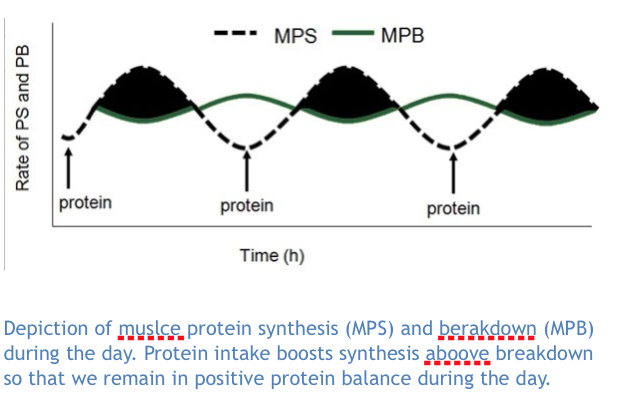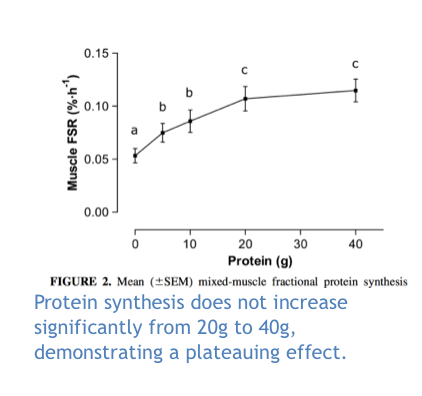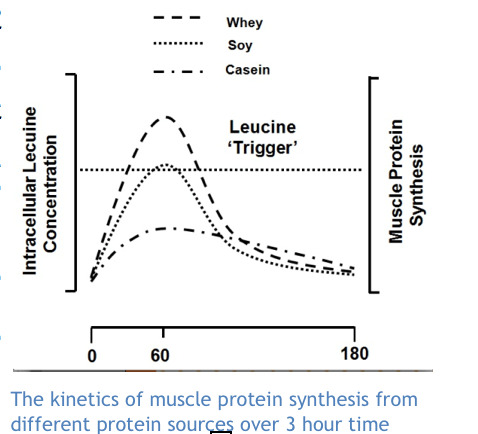Nutrition Takeaways: Gatorade Sport Science Institute

Evan Stevens
The main theme of this session was protein supplementation before bed to improve muscle protein balance and synthesis. We have known for a long time that protein taken a short time after exercise improves muscle protein synthesis. This is the process of repairing and building muscle after it has been stressed during exercise. What we don’t know, however, is if additional protein given during the day, specifically before bed, has any effect on improving muscle protein synthesis.
The idea of giving protein before bed comes from the fact that we go into something called nitrogen debt, or negative nitrogen balance, during the overnight period. Nitrogen makes up the backbone of amino acids. They are the amine – or amino – group of the amino acid. And as amino acids make proteins, we get nitrogen from those proteins. Positive nitrogen balance means that we have enough protein for our bodies to build enzymes, muscle tissues, and so on.
During the day we are able to maintain a positive nitrogen balance from the meals and snacks we consume.  However, overnight we are in a fasted state. We do not eat and thus go into a negative nitrogen balance. So, this brings us to the topic at hand: Can we maintain positive nitrogen balance by giving a high dose of protein right before bed? Which would improve muscle protein synthesis and recovery overnight?
However, overnight we are in a fasted state. We do not eat and thus go into a negative nitrogen balance. So, this brings us to the topic at hand: Can we maintain positive nitrogen balance by giving a high dose of protein right before bed? Which would improve muscle protein synthesis and recovery overnight?
Protein Supplementation Research
The various research groups tested individuals from a wide range of backgrounds, young to old, performance athletes to sedentary individuals, giving them protein supplementation before bed, either after an evening exercise bout or just part of a regular routine, without exercise. It is important to note that all research groups who presented used casein as the protein source.

Casein is an animal protein usually sourced from milk; it is very slow to be used and processed by the body, usually too slow to be of any use after a workout, often taking up to 12 hours to be fully digested and utilized.
Previous studies have consistently shown that protein needs to be consumed within 20 minutes post exercise as muscle protein synthesis rates are highest for the two hours immediately following exercise. This means we need a protein source that is fast acting hence why most protein supplements use whey isolates as a source of protein (whey being isolated from the liquid by-product of cheese production). Casein was chosen because it lasts a long time, so during the overnight fast it could improve our nitrogen balance by supplying a continual supply of protein (and perhaps improving the rate of muscle protein synthesis).
Study Findings
The findings of the studies were less than promising however. In several of the studies subjects were hooked up to machines that allowed the researchers to measure makers of muscle protein synthesis and the rate at which the protein appeared in the blood while the subjects slept. Regardless of age, training, or exercise status, it appeared as though muscle protein synthesis rates were unchanged during the overnight fast.
The researchers did note that the protein was absorbed (albeit slowly) into the muscle and that protein levels found in the blood were similar to those that would be found during waking hours (meaning that net protein balance was positive). The lack of improved muscle protein synthesis as an end result was disappointing for the researchers, yet they did see some increases in muscle protein markers. which could be predictors of muscle protein synthesis in response to stimulus. Only problem being, there’s no stimulus during sleep and the researchers didn’t offer anything to suggest that the precursors would last long enough to be useful for a morning exercise bout.
Study Conclusions
So what can we gather from these studies? Well, as stated, we have known for a long time that casein isn’t ideal to improve muscle protein synthesis, as it acts far too slow. If the participants ingested casein after a workout and then went to bed, they really weren’t doing anything to help improve muscle protein synthesis rate. Although researchers saw that protein markers in the blood were similar to waking hours, the high protein intake did not  translate to any noticeable increase in muscle protein.
translate to any noticeable increase in muscle protein.
In addition, sustained high levels of protein over time can lead to poor kidney function, leaching of bone minerals, hormone imbalances as well as other complications. We’ve also known for a long time that 20g of protein post-workout is just about optimal to improve muscle protein synthesis rates. Anything above that doesn’t seem to improve synthesis rates. There is a plateauing effect past 20g, and taking anything over that is just a waste of money.
By using casein protein they may have also missed out on optimal synthesis rates. The researchers only monitored blood levels at one point in the middle of the night and may have missed optimal synthesis that could have been provided by using an alternate source of protein that acts much faster – whey.  The figure to the right shows why whey is the best source of protein.
The figure to the right shows why whey is the best source of protein.
While casein maintains slowly over time, whey acts quickly – within the first hour post exercise. This is because it contains a high amount of the branched chain amino acid leucine; leucine acts as a ‘trigger’ for muscle protein synthesis. As you can see, casein doesn’t really do much to improve muscle protein synthesis.
Take Away
Additional mega dosing of casein protein does not improve overnight muscle protein synthesis rates. Protein supplementation should be taken immediately post exercise and should be at a quantity of about 20g and be isolated from a whey source.
Final Talk
The final talk from this session veered away from protein synthesis to look at the effect of training at low carbohydrates (CHO) and high fat dietary levels. The hypothesis is that training at low CHO would increase mitochondrial efficiency and activity. The body would naturally adapt to the high fat diets and would preferentially use fats as a source of energy (as fat is the most energy dense macromolecule). However, when put into practice, a high fat, low CHO combination is a pretty bad idea.
High fat diets increase enzymatic activity because of the shift to reliance on fat. Increased fatty acid transporters appear on the cellular and mitochondrial membranes as well as in the cytoplasm. The high fat, even in trained individuals, increased the amount of fat transport gene expression, but did not increase the number of mitochondria. Meaning there was no boost to energy creation. The researchers tested trained triathletes in a 10km cycling time trial before and after 10 days of a high fat, low CHO diet, and the results showed that performance was significantly decreased across every athlete.
Fats and Performance Decrease
You may be wondering why performance decreased, as if there are more fat transporters on the cell and mitochondria membranes so that fat (the energy source) can be brought into the cell and converted into energy more efficiently. The problem is that when we work hard, blood flow stops going where fat is stored in our bodies. It diverts from non-vital areas and goes toward the working muscles. In fact, fat is utilized very poorly above 60% VO2 Max, which isn’t much more intense than a brisk walk. Above 60% VO2 Max, we preferentially use glycogen because it is easy for our bodies to get to. This is because it is stored in the muscles and the liver; places where blood flow is maintained during higher intensity exercises.
Eating fats post-exercise also led to further performance decreases. The body used the stored glycogen rather than the fat that was fed through the study – the fat remains and feeding more fat only increases deposition but the glycogen used in exercise isn’t restored because of the low carbohydrate intake.
Low Carb Workouts Take Away
High fat diets are not conducive to performance. At intensities higher than a brisk walk, blood flow does not go to where fat is stored. Thus it cannot be transported to the active muscles. Glycogen is the main source of energy at higher intensities. And diets that provide sufficient CHOs are more conducive to performance. Providing CHOs post-workout replenishes energy reserves.
You Might Like:














